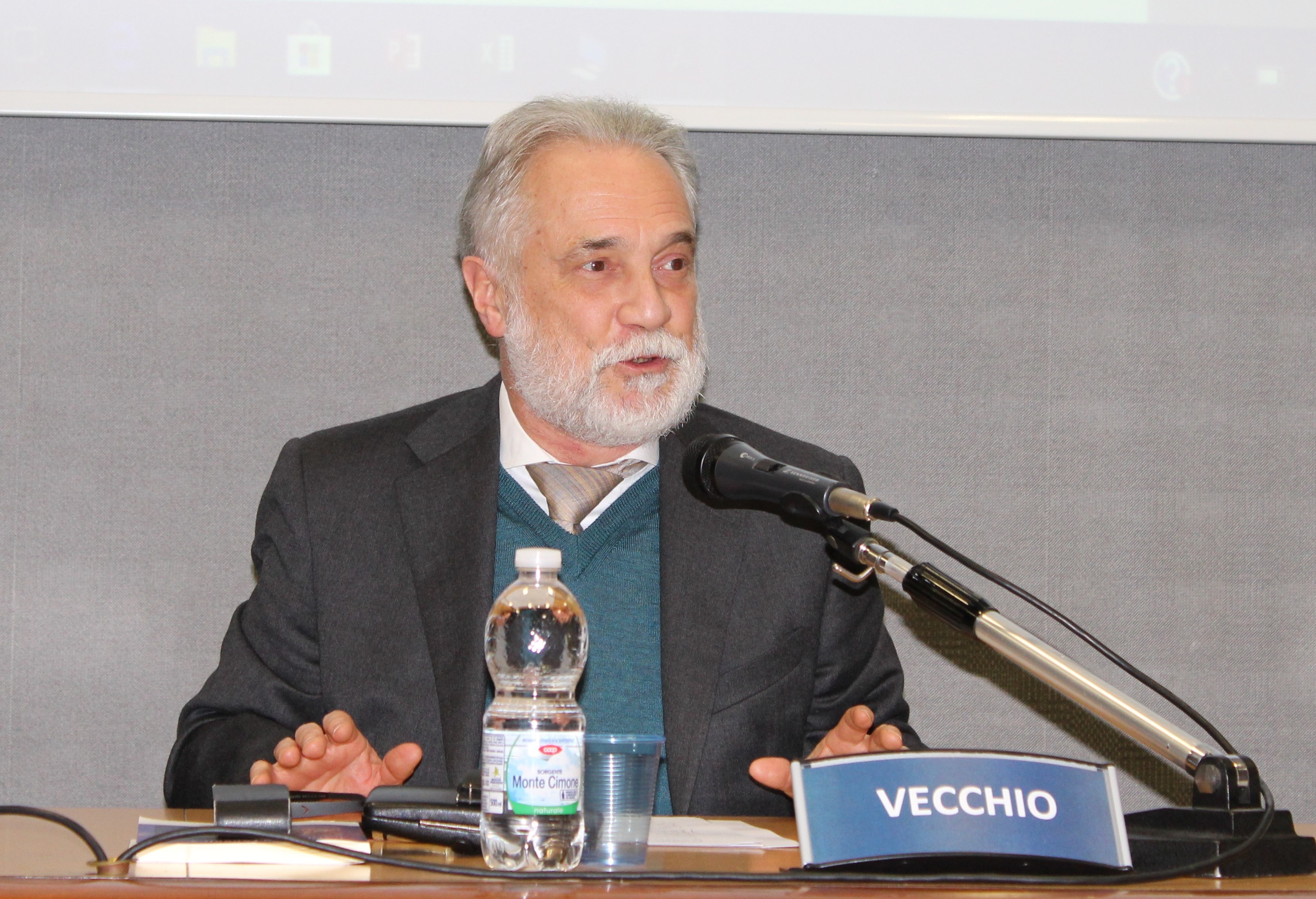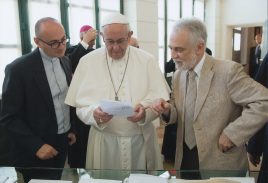INTERVIEW
Giorgio Vecchio, history professor at the University of Parma, expert in the history of Italy and Europe in the 20th century, guards against political stances regarding collective memory. He highlights the merits and limitations of the EU Parliament Resolution adopted on the 80th anniversary of the start of World War II. “Stating that the 1939 Molotov-Ribbentrop Pact led to the outbreak of World War II is the most serious mistake.”

“Stating that the 1939 Molotov-Ribbentrop Pact led to the outbreak of World War II” is the most serious mistake. But it’s not the only limitation – alongside with positive elements – of the Resolution adopted by the European Parliament on the 80th anniversary of the start of the armed conflict. We asked the opinion of Giorgio Vecchio, scholar of contemporary history at the University of Parma. His most renowned essays include, inter alia, studies on 20th century Italy and Europe, the European integration process, the history of the Catholic movement and the Italian Resistance. Vecchio chairs the Academic Committee of the Don Primo Mazzolari Foundation.
Professor, the Resolution adopted in Strasbourg sparked off controversies, political protests, and debates among scholars. In particular, the document was criticised for referring to Nazism and communism as parallel evils. In reality the Resolution is rather articulate. In your opinion, what are its positive aspects, if any?
I would like to make a preliminary remark. I am very doubtful as to whether it is appropriate for political representative bodies to pass motions or even laws that regulate historical memory. In fact, this has two possible outcomes: either a coup de main by the ruling majority, which imposes its own truth, or a compromise solution which makes everyone unhappy. In any case, the sacrificial victim is the complexity of historical events. Instead of exploiting historical memory, politicians should encourage its in-depth study. Namely, they should do the opposite of what all the last Italian governments –across the political spectrum – have done so far. More to the point, the EU Parliament Resolution of September 19 is the result of a compromise, as can be seen in the alternate use of the terms “Communist” and “Stalinist” which –most obviously– only partly coincide. You asked about the positive aspects of the documents. Well, clearly those that denounce and condemn the resurgence of “openly radical, racist and xenophobic movements”, which “have been inciting hatred and violence in society, for example through the online dissemination of hate speech, which often leads to a rise in violence, xenophobia and intolerance.” Or the passages that “condemn historical revisionism and the glorification of Nazi collaborators in some EU Member States.” Naturally we also welcome the invitation “to do the utmost to ensure that horrific totalitarian crimes against humanity and systemic gross human rights violations are remembered and brought before courts of law, and to guarantee that such crimes will never be repeated.”
 What are its limitations or – if any – the historical “mistakes” of the document adopted by MEPs?
What are its limitations or – if any – the historical “mistakes” of the document adopted by MEPs?
As has been widely pointed out, the most serious mistake is the statement whereby the Molotov-Ribbentrop Pact of August 23 1939 led to the outbreak of World War II, thereby implicitly accusing the Soviet Union of being co-responsible for the catastrophe. This is a blatant falsehood. Let’s examine it in a methodical way. The Second World War was sparked off by a series of causes related to Hitler’s Nazi Germany. Germany has obvious responsibilities which no one can deny, also because they were driven by an ideology based on racial supremacy and on the notion of exterminating corruptive “races” (the Jews) or enslaving the inferior “races” (the Slavs and others). But France’s responsibilities must also be taken into account, as it blindly imposed a punitive and excessive peace on Germany in 1919, thus laying the foundations for the resumption of nationalism and Teutonic militarism. Moreover, France and Great Britain’s constant concessions to Hitler and to his repeated violations of international treaties should be duly acknowledged. Up until the last moment, Western democracies gave no sign of wishing to defend East European countries that had already been attacked (Czechoslovakia) or were about to be attacked (Poland).
What about Stalin?
Stalin acted with unquestionable motivations, based on the assumption that after Poland it would have been the turn of his country. The August 1939 pact was a chance to take time and understand what might happen next, while the USSR was making preparations for future war. Indeed, the Pact was a temporary guarantee for Hitler and gave him free rein over Poland and Western Europe. As we can see, things were much more complex than the way they are depicted by the European Parliament. Let’s now come to the equivalence drawn between communism and Nazism. Here too, things are extremely complex. Let us begin by addressing the issue of Soviet imperialism vis-à-vis the other countries of Central and Eastern Europe. Our condemnation is clear and unequivocal (I say this while recalling the passion with which I followed, as an eighteen-year-old, the hopes and the crackdown of the “Prague Spring” in 1968). But we must also view things from a different angle. Russia/USSR had been attacked by Germany in two world wars, it was surrounded by authoritarian right-wing states and invaded by Hungarian, Romanian, Finnish and Italian troops. The condemnation of the cruelty of Soviet foreign policy should not overshadow the fact that Stalin’s primary concern was defence, even though this resulted in the partitioning of Poland and the occupation of the Baltic States and other territories. The Soviets thought they could only defend themselves in the future by creating – and controlling – satellite (or “buffer”) States.
 And what about the two political systems, viewed as a whole?
And what about the two political systems, viewed as a whole?
Their common feature was the continuous, persistent, undeniable violation of fundamental human rights, including religious freedom. I am referring not only to the Christian churches, but also to the Muslims and, in particular, to Jehovah’s Witnesses, who gave powerful testimony of faith both in Germany and in the Soviet Union. But we must make the necessary distinctions! Soviet ideology in itself was not aimed at the physical elimination of entire “races”, nor did it seek to enslave the peoples. The gulag system brought suffering and death to millions of people, but the idea of the “rehabilitation” of prisoners remained (which in many cases occurred), unlike Nazi concentration camps. It would be necessary to have more time to illustrate the affinities and differences of the two oppressive systems… Finally, it should not be forgotten that on 22 June 1941 Germany attacked the USSR, which in four years suffered the loss of more than 20 million citizens. Twenty million! It was also thanks to their sacrifice that Germany was stopped at Stalingrad, well before the American soldiers set foot in Sicily and then in Normandy.